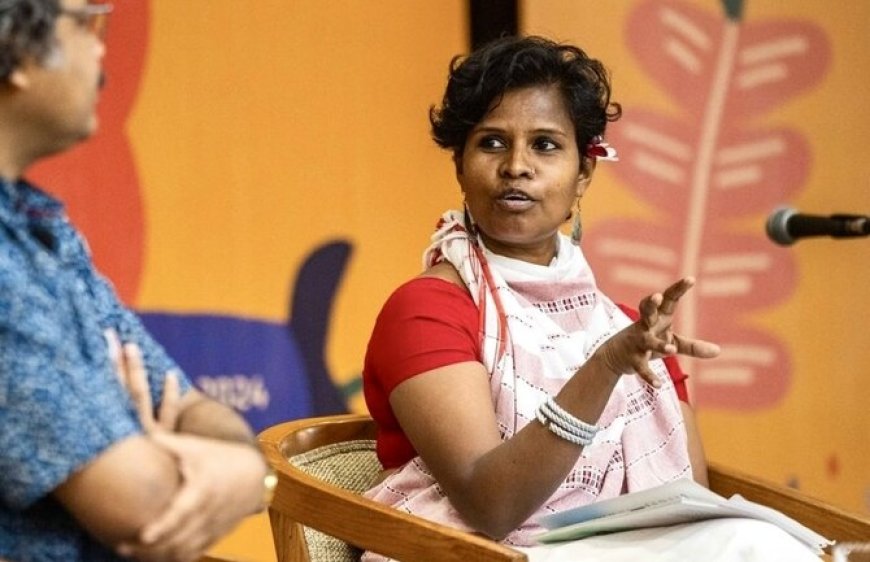In a bold act of protest, Indian poet Jacinta Kerketta has turned down the prestigious Room to Read Young Author Award, citing her solidarity with Palestinian children and women suffering under Israeli military actions. Kerketta, a member of India’s marginalized Adivasi community, made the decision in response to the ongoing violence in Gaza, where thousands of children and women have been killed with the support of U.S. military aid to Israel.
The award, which is co-sponsored by the U.S. Agency for International Development (USAID) and the Room to Read India Trust, was to be given to Kerketta for her latest children’s poetry collection, Jirhul. But upon learning of the award’s U.S. connections, Kerketta felt a moral obligation to reject the honor. “When I got information about the award for children’s literature, I felt that it was more important to speak for the children of Palestine than to receive an award,” she told Arab News on Wednesday.
Kerketta also expressed concerns over Room to Read’s collaboration with Boeing, a corporation with longstanding arms deals with Israel. "At the same time when children were being killed in Palestine, Room to Read India Trust was collaborating with Boeing Company ... a company that has had arms business with Israel for a long time," she added. Her decision to reject the award highlights the intersection of literature, activism, and global political conflicts, and it underscores the poet’s commitment to human rights, especially for children affected by war.
Kerketta’s stance comes at a time when violence in Gaza has reached unprecedented levels. Recent data from Oxfam indicates that over 6,000 Palestinian women and 11,000 children have been killed by Israeli forces since October 2023, numbers that continue to climb. Oxfam’s figures do not account for the thousands who remain missing or unidentified. Earlier this year, a study published by The Lancet estimated that the true toll of Palestinian deaths in Gaza, including those resulting from starvation and lack of medical access, could exceed 186,000.
Kerketta, hailing from Jharkhand in eastern India, draws strength from her Adivasi roots. The Adivasi people, known for their deep connection to nature and their struggles for autonomy and survival, have historically advocated for human freedom and justice. "My community gives me the courage to show solidarity with those fighting for their freedom," she explained. Her rejection of the award is not just an act of defiance but also a reflection of her community’s values, which have long stood against oppression.
As violence in Gaza continues, Kerketta’s gesture stands as a powerful reminder of the global ramifications of war and the role artists can play in drawing attention to those who suffer most—especially the innocent. Her decision has sparked conversations about the responsibilities of cultural figures in times of conflict and the need for more voices to stand up for justice on the international stage.














































